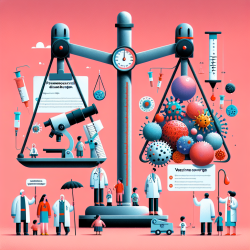Introduction
Attention-deficit/hyperactivity disorder (ADHD) is a neurodevelopmental disorder that often persists into adulthood, affecting approximately 1.4% to 3.6% of adults. Traditional treatments include pharmacological and behavioral interventions, but alternative approaches like neurofeedback (NF) are gaining attention due to their potential for long-term benefits without medication side effects.
Understanding Neurofeedback
Neurofeedback involves training individuals to regulate specific brain activities through real-time feedback. This method has shown promise in managing ADHD symptoms by targeting neurocognitive deficits, particularly those related to prefrontal cortex hypoactivation. Two types of NF explored in recent research are slow cortical potential (SCP) and functional near-infrared spectroscopy (fNIRS).
Research Insights
A recent study compared SCP-NF and fNIRS-NF with a semi-active electromyography biofeedback (EMG-BF) control group. Participants underwent 30 training sessions, with outcomes assessed immediately after and at a six-month follow-up. The study found that all groups showed significant symptom improvement, suggesting non-specific effects. However, fNIRS learners demonstrated more substantial reductions in ADHD global scores, particularly in impulsivity.
Implications for Practitioners
For practitioners, these findings highlight the importance of individualized approaches in NF training. Identifying learners—those who can effectively regulate the targeted neurofeedback parameter—can lead to superior outcomes. This suggests that while NF can be beneficial, its effectiveness may vary based on the individual's ability to learn and apply the feedback.
Encouraging Further Research
The study underscores the need for more research into the mechanisms of NF and its long-term effects. Practitioners are encouraged to consider NF as a complementary approach and to stay informed about ongoing research to optimize treatment strategies for adult ADHD.
Conclusion
Neurofeedback presents a promising avenue for managing ADHD symptoms in adults. By focusing on data-driven approaches and individualized learning, practitioners can enhance treatment outcomes. Continued research and clinical trials will be crucial in refining these methods and understanding their full potential.
To read the original research paper, please follow this link: A randomized-controlled neurofeedback trial in adult attention-deficit/hyperactivity disorder.










